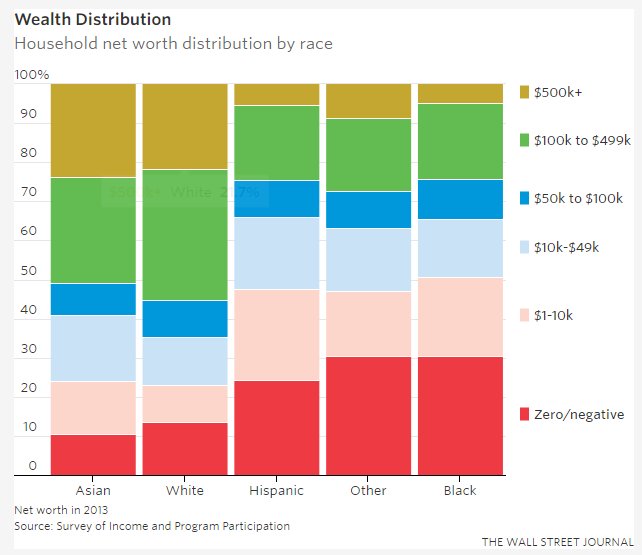https://www.washingtonpost.com/news...s-940am:homepage/story&utm_term=.7a610265f2ce
Great data roundup in the Post today spelling out something that many of us knew about but which has refused to permeate within the collective consciousness of the media. The "WHITE WORKING CLASS REVOLT" has been the narrative every time we get a right-wing populist electoral uprising, but it doesn't hold up under scrutiny, because Trump and the GOP's numbers go up as you climb the income ladder until you get close to the top of it. (which is where you're much more likely to find suburban and urban voters making up a larger proportion.)
Great data roundup in the Post today spelling out something that many of us knew about but which has refused to permeate within the collective consciousness of the media. The "WHITE WORKING CLASS REVOLT" has been the narrative every time we get a right-wing populist electoral uprising, but it doesn't hold up under scrutiny, because Trump and the GOP's numbers go up as you climb the income ladder until you get close to the top of it. (which is where you're much more likely to find suburban and urban voters making up a larger proportion.)
Media coverage of the 2016 election often emphasized Donald Trumps appeal to the working class. The Atlantic said that the billionaire developer is building a blue-collar foundation. The Associated Press wondered what Trumps success in attracting white, working-class voters would mean for his general election strategy. On Nov. 9, the New York Times front-page article about Trumps victory characterized it as a decisive demonstration of power by a largely overlooked coalition of mostly blue-collar white and working-class voters.
Theres just one problem: this account is wrong. Trump voters were not mostly working-class people.
During the primaries, Trump supporters were mostly affluent people.
The misrepresentation of Trumps working-class support began in the primaries. In a widely read March 2016 piece, the writer Thomas Frank, for instance, argued at length that working-class white people make up the bulk of Trumps fan base. Many journalists found colorful examples of working-class Trump supporters at early campaign rallies. But were those anecdotes an accurate representation of the emerging Trump coalition?
There were good reasons to be skeptical. For one, most 2016 polls didnt include information about how the people surveyed earned a living, that is, their occupations the preferred measure of social class among scholars. When journalists wrote that Trump was appealing to working-class voters, they didnt really know whether Trump voters were construction workers or CEOs.
Moreover, according to what is arguably the next-best measure of class, household income, Trump supporters didnt look overwhelmingly working class during the primaries. To the contrary, many polls showed that Trump supporters were mostly affluent Republicans. For example, a March 2016 NBC survey that we analyzed showed that only a third of Trump supporters had household incomes at or below the national median of about $50,000. Another third made $50,000 to $100,000, and another third made $100,000 or more and that was true even when we limited the analysis to only non-Hispanic whites. If being working class means being in the bottom half of the income distribution, the vast majority of Trump supporters during the primaries were not working class.
But what about education? Many pundits noticed early on that Trumps supporters were mostly people without college degrees. There were two problems with this line of reasoning, however. First, not having a college degree isnt a guarantee that someone belongs in the working class (think Bill Gates and Mark Zuckerberg). And, second, although more than 70 percent of Trump supporters didnt have college degrees, when we looked at the NBC polling data, we noticed something the pundits left out: during the primaries, about 70 percent of all Republicans didnt have college degrees, close to the national average (71 percent according to the 2013 Census). Far from being a magnet for the less educated, Trump seemed to have about as many people without college degrees in his camp as we would expect any successful Republican candidate to have.
Trump voters werent majority working class in the general election, either.
What about the general election? A few weeks ago, the American National Election Study the longest-running election survey in the United States released its 2016 survey data. And it showed that in November 2016, the Trump coalition looked a lot like it did during the primaries.
Among people who said they voted for Trump in the general election, 35 percent had household incomes under $50,000 per year (the figure was also 35 percent among non-Hispanic whites), almost exactly the percentage in NBCs March 2016 survey. Trumps voters werent overwhelmingly poor. In the general election, like the primary, about two thirds of Trump supporters came from the better-off half of the economy.
But, again, what about education? Many analysts have argued that the partisan divide between more and less educated people is bigger than ever. During the general election, 69 percent of Trump voters in the election study didnt have college degrees. Isnt that evidence that the working class made up most of Trumps base?
The truth is more complicated: many of the voters without college educations who supported Trump were relatively affluent. The graph below breaks down white non-Hispanic voters by income and education. Among people making under the median household income of $50,000, there was a 15 to 20 percentage-point difference in Trump support between those with a college degree and those without. But the same gap was present and actually larger among Americans making more than $50,000 and $100,000 annually.



